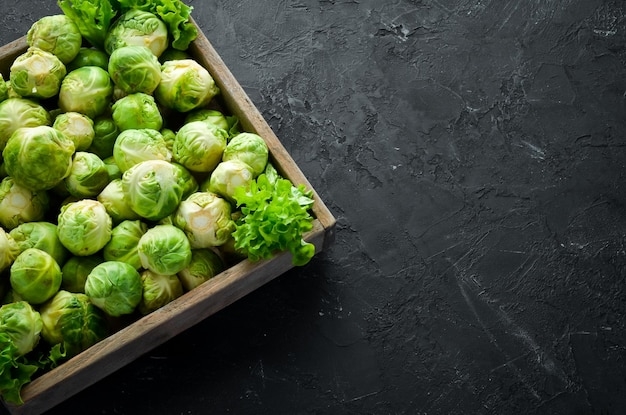Greek moussaka is a popular traditional dish made with eggplant, potatoes, and meat sauce, and topped with creamy béchamel sauce. It is a delicious and nutritious dish that is packed with protein, calcium, and iron.
Protein Content
The protein content of 100g of Greek moussaka is approximately 8g. The primary source of protein in moussaka is the meat sauce made from ground beef or lamb.
Protein is an essential nutrient that is required for the growth and repair of tissues in the body. It is also important for the production of enzymes, hormones, and antibodies. Protein is especially important for athletes and bodybuilders, as it helps to build and maintain muscle mass.
Calcium Content
The calcium content of 100g of Greek moussaka is approximately 80mg. Calcium is an essential mineral that is required for the development and maintenance of strong bones and teeth.
A diet that is high in calcium is especially important for children, teenagers, and post-menopausal women, as they are at a higher risk for developing osteoporosis.
Iron Content
The iron content of 100g of Greek moussaka is approximately 1.5mg. Iron is an essential mineral that is required for the production of hemoglobin, which is a protein that is found in red blood cells and helps to transport oxygen throughout the body.
Iron is especially important for women, as they are at a higher risk for developing iron-deficiency anemia due to blood loss during menstruation.
Other Nutrients
Greek moussaka is also a good source of other important nutrients, including:
- Vitamin C
- Vitamin B6
- Potassium
- Magnesium
- Phosphorus
Vitamin C is an essential nutrient that is required for the growth and repair of tissues in the body. Vitamin B6 is important for the production of red blood cells, and helps to maintain proper brain function.
Potassium, magnesium, and phosphorus are important minerals that are required for proper muscle and nerve function, and for maintaining a healthy heart and blood pressure.
How to Make Greek Moussaka
Here is a simple recipe for making Greek moussaka:
- Preheat the oven to 375°F.
- Peel and thinly slice 2 eggplants and 3 potatoes. Place them on a baking sheet lined with parchment paper, and brush with olive oil. Bake for 20-25 minutes, or until tender.
- While the vegetables are baking, prepare the meat sauce by browning 1 pound of ground beef or lamb in a large skillet. Drain any excess fat, and add 1 chopped onion, 2 minced garlic cloves, 1 tablespoon of tomato paste, and 1 teaspoon of dried oregano. Cook for 2-3 minutes, or until the onions are soft.
- Add 1 can of diced tomatoes and 1/2 cup of chicken or beef broth to the skillet. Bring to a boil, then reduce heat and simmer for 10-15 minutes, or until the sauce has thickened.
- Prepare the béchamel sauce by melting 4 tablespoons of butter in a medium saucepan. Add 1/4 cup of flour and whisk until smooth. Gradually whisk in 2 cups of warm milk and 1/2 cup of grated parmesan cheese. Cook for 5-10 minutes, or until the sauce has thickened.
- Assemble the moussaka by layering the baked eggplant and potatoes, meat sauce, and béchamel sauce in a large baking dish. Repeat the layers until all of the ingredients are used up. Top with 1/2 cup of grated parmesan cheese.
- Bake for 45-50 minutes, or until the top is golden brown and crispy. Let cool for 10-15 minutes before serving.
FAQs
1. Is Greek moussaka healthy?
Yes, Greek moussaka is a healthy and nutritious dish that is packed with protein, calcium, and iron, as well as other important vitamins and minerals. However, it is important to watch your portion sizes, as moussaka can be high in calories and fat.
2. What can I substitute for eggplant in moussaka?
Zucchini or sweet potatoes are good alternatives to eggplant in moussaka.
3. Can I make moussaka without meat?
Yes, you can make a vegetarian version of moussaka by omitting the meat and using lentils or mushrooms instead.
4. How should I store leftover moussaka?
Store leftover moussaka in an airtight container in the refrigerator for up to 3 days.
5. Can I freeze moussaka?
Yes, you can freeze moussaka. Let it cool to room temperature, then transfer it to a freezer-safe container or zip-top bag. It will keep in the freezer for up to 3 months.
6. What should I serve with moussaka?
Moussaka is a filling dish and can be served on its own, or with a side salad or bread.
7. Is moussaka gluten-free?
No, moussaka is not gluten-free, as it contains wheat flour in the béchamel sauce. However, you can make a gluten-free version of moussaka by using a gluten-free flour or cornstarch to thicken the sauce.
8. Can I use ground turkey in moussaka?
Yes, you can use ground turkey or chicken in moussaka instead of beef or lamb.
9. How long does it take to make moussaka?
It takes about 2 hours to make moussaka, including prep and bake time.
10. Is moussaka spicy?
No, moussaka is not typically a spicy dish, but you can add red pepper flakes or hot sauce to the meat sauce if you prefer.
Conclusion
Greek moussaka is a delicious and nutritious dish that is packed with protein, calcium, and iron, as well as other important vitamins and minerals. It is a great way to incorporate more vegetables and lean protein into your diet, and it can be modified to suit your taste preferences and dietary needs.

















































